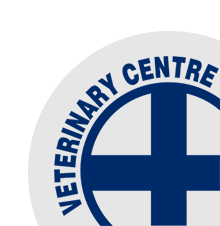Diagnosis and Treatment of Endometritis
/These cows typically have a creamy pussy discharge when 'Metrichecked' and may outwardly look to be in good health. Even just a few flecks of pus on a 'Metricheck' device indicate that infection is present. The longer these second stage infections remain undetected the greater the chance the cow will become infertile.
Long standing uterine infections cause permanent uterine scarring. Recent trials have shown that those cows treated 1-3 weeks post calving have far better reproductive results than cows treated 4-8 weeks post calving.
The majority of uterine infections will have become undetectable 4 weeks post calving, even when using a 'Metricheck' device. The infection however remains present deep inside the uterus. These 'hard to detect' cows still have very poor fertility. Early checking will considerably increase the chance of finding these 'dirty' cows.
All 'At risk' cows (RFM's, dead calvings, assisted calvings, vaginal discharge, twins) should be treated with a 'Metricure', 2-4 weeks post calving.
The rest of the herd should be 'Metrichecked' 7-28 days post calving. Careful planning must be done to ensure calving groups can be identified for checking. A sensible rational would be to identify cows calving up to the mid point and 'Metricheck' these 1-2 weeks after this date - e.g. August the 20th-25th. The third quarter to calve is then marked again and checked 3 weeks later on about the 5th of September and the final quarter around another 3-4 weeks later on about the 5th of October.
Metricheck devices may be purchased or lent or you may use your vet to detect and treat during the same milking.
Calf Rearing Consultancy
/The first of July has ticked over and our thoughts turn to getting ready for next calving. Soon we will welcome a new batch of calves, representing a huge financial investment in the genetics of our herd. If you have new staff involved in rearing your calves this year, are you confident they can........
- Safely stomach tube a calf to ensure they are getting essential colostrum within 12 hours?
- Safely care for and prepare your young calves for transport, maximising their welfare and meeting all the new requirements?
- Differentiate a hernia from an infected naval and know what to do with each?
- Spot that first scoury calf and know how to effectively halt the spread of the bugs?
If the answer to these, or any other calf related questions is no, then the Veterinary Centre is here to help. We have ateam of veterinarians with a keen interest in calf rearing, headed up by veterinarian Nicola Neal, who has nearly 10 years of large scale calf rearing experience. Utilising the latest ground breaking NZ research into calf health, we can provide tailored on-farm calf rearing training for staff, or individual management level advice to get your sheds and systems humming. To get your calves off to a flying start and all your staff on the same page, give the Veterinary Centre a call today.
Rotavirus Scours
/Now is the time to start considering the protection of this season's calves against Rotavirus scours. As we know, Rotavirus is the most common cause of infectious diarrhoea in young neonatal calves - and is easily spread from calf to calf by contaminated faeces in the calf pen. Successful calf rearing can be a real challenge, especially in the large herd situation. Overcrowding in sheds, especially in wet/cold weather, damp sheds, poor colostral transfer and overstretched staff can allow an environment for the proliferation of bugs that cause infectious diarrhoea i.e. Rotavirus, Salmonella, Coccidia.
Prevention of Rotavirus is a sound investment to protect your calves and their welfare. The vaccine Rotavec Corona is administered to the pregnant cow as a single shot between 3 and 12 weeks prior to calving. Therefore a herd should be vaccinated 3 weeks before the PSC to cover a 9 week calving spread.
A second option for cows which have already been vaccinated in previous years with Rotavec, is to boost these cows with Kolibin Neo, a new vaccine from AgriHealth. Kolibin Neo provides protection against the prevalent and NZ relevant rotavirus serotypes. Kolibin Neo has sound trial work, can be administered 2-12 weeks prior to calving, and offers a cost saving when used as a booster vaccine. If Kolibin Neo is used in previously unvaccinated cows, the cow will need two vaccinations in her first year. Therefore the net cost in year one, is slightly more than a single vaccination of Rotavec.



